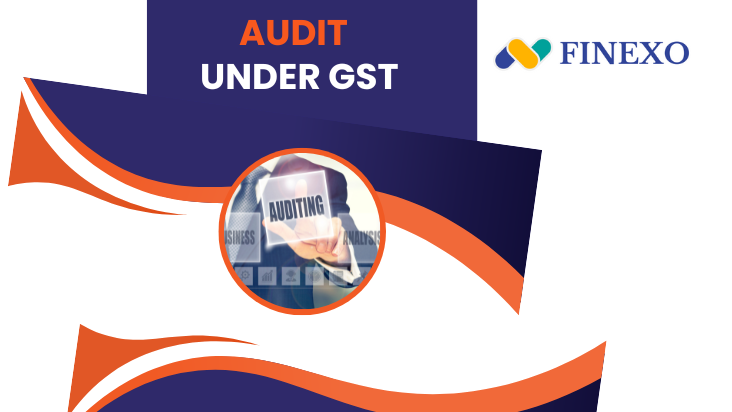
Audit under GST By GST Department
GST law is based on self-assessment i.e., the taxpayer assesses his liability himself and files his GST return. So, in case of any discrepancy and short payment or tax evasion audit needs to be done by the GST department. In this article, we will discuss the types of audits under GST.
Audit by tax authorities
Who may conduct the Audit?
Audit of registered person may be undertaken by the commissioner or any officer authorized by him. Audit may be carried out at the place of business of the registered person or in their office. Commissioner or any officer authorized by him, by way of general or special order, may undertake the audit of any registered person even for a part of the financial year or for multiple financial years. The proper officer shall issue a notice 15 working days prior to the conduct of the audit.
What is meant by commencement of audit?
The Commencement of the audit is important because the time of completion is determined from that date. Commencement of audit means later of the following.
- The date on which records/accounts called by authority are made available to them or
- The actual initiation of audit at the place of the taxpayer.
The time limit for completion of the audit.
The audit should be completed within 3 months from the date of commencement of the audit. This period is extendable for a further period of 6 months by the commissioner.
How the audit is conducted?
The proper officer authorized to conduct an audit of records and books of accounts with the assistance of the team of officers and they will verify the following documents and record the observations in his audit notes
- Documents based on which the books of accounts are maintained and returns and statements furnished under the act
- Correctness of turnover, exemptions and deductions claimed
- Input tax credit availed and utilized, refund claimed and other relevant issues.
Finalisation of audit-
The proper officer may inform the registered person about the discrepancies noticed and said person may file his reply. The proper officer shall finalise the findings of the audit after considering the reply. At the conclusion of the audit, the proper officer shall inform the registered person within 30 days about the findings with reason. Where the audit results in the detection of tax not paid or short paid or erroneously refunded or input tax wrongly availed or utilized, the proper officer may initiate an action of demands and recovery.
Special audit
1. When special audit be conducted?
When an officer not below the rank of assistant commissioner finds complexities in the case at any stage of scrutiny, inquiry or investigation and believes that-
- The value of goods and services has not been correctly declared or
- The credit availed is not within the normal limits
He may issue a direction (with the prior approval of the commissioner) to the registered person to get his records examined and audited by a chartered accountant or a cost accountant as may be nominated by the commissioner. The provisions of the special audit shall have effect even if the accounts of the registered person have been audited under any other provisions of the act.
2. Time limit to complete the audit-
CA or CMA as nominated by the commissioner shall submit a report of such audit duly signed and certified by him within the period of 90 days to the said assistant commissioner particulars as may be specified. The assistant commissioner may extend said period by a further period of 90 days on an application made by the registered person, CA or CMA or for any material or sufficient reason.
3. Who will bear the expense of the audit?
The expense of the examination and audit of records including the salary of CA or CMA shall be determined and paid by the commissioner and that will be final.
4. Special Audit Report-
The registered person shall be given an opportunity of being heard in respect of any material gathered based on the special audit. On the conclusion of the special audit, the registered person shall be informed about the findings of the special audit. Where the special audit results in the detection of tax not paid or short paid or erroneously refunded or input tax credit wrongly availed or utilised, the process of demand and recovery will be initiated against the registered person.
Important Sections-
| Sections | Concepts |
|---|---|
| Section 65 | Audit by tax authority |
| Section 66 | Special audit |
| Section 73 and 74 | Demand and recovery |
About CA Shravagi Jain
CA Shravagi Jain has completed her CA in 2021. She is engaged in writing articles and also teaching CA students.
